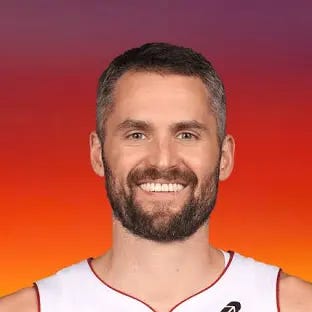Let's Talk Mental Health: What Every Coach Needs to Know
Elevate your team's potential through learning how to positively develop mental health with your athletes. Expert advice, practical strategies, and inspiring stories delivered to your inbox. Free!
The Opening Line from Jim and Jason
Encouragement and perspective for Mental Health Awareness Month.A Message from Bob Martin, BMS Project
How one nonprofit is transforming mental health in youth sports.Champions of Change: Joe Mazzulla
What the Celtics coach can teach us about emotional leadership.In the Spotlight: Why This Matters Now
The silent mental health crisis and how coaches are uniquely positioned to help.Reality Check: The Data and the Danger
Anxiety. Depression. Suicide. The facts we can’t ignore anymore.The Deep Dive: Why It’s Happening
Unpacking the cultural, family, and systemic forces affecting our athletes.The Toolbox: The 5-Minute Game Changer
One simple shift to start changing your culture—today.Game-Changing Quote
This week’s wisdom from NBA All-Star Kevin Love.The Joy of the Game
A reminder that fun still matters.
The Opening Line From Jim and Jason
Coaches,
This month, as we focus on Mental Health Awareness, we want to acknowledge the incredible dedication you bring to your role. You are more than coaches; you are mentors, role models, and often a lifeline for young athletes navigating the intense pressures of youth sports.
We understand the challenges you face. The long hours, the emotional investment, and the weight of responsibility for these young lives can be immense. But your influence extends far beyond the win-loss column. You have the power to instill invaluable life skills. Remember, the most effective coaches are those who prioritize making the people around them better. This includes nurturing their mental and emotional well-being.
Let’s use this month as a reminder to:
Be present: Truly listen to your athletes and create a safe space for open communication.
Be understanding: Recognize the unique pressures they face and offer support.
Be empowering: Encourage their growth as individuals, not just athletes.
Your commitment to their holistic development will shape not only their athletic careers but also their lives.
Ready to join the movement? Let's do this together.
Not your thing? No hard feelings. Click unsubscribe at the bottom of the newsletter.
Thank you for being the leaders our athletes need.
Sincerely,
Jim and Jason
A Special Message from Bob Martin of the BMS Project!
Founded in 2022, the BMS Project helps youth sports communities create safe, healthy, and positive experiences. With a focus on mental health, suicide prevention, and holistic well-being—Body, Mind, and Spirit—their “concierge-like” approach offers simple, actionable support for athletes and families.
Click Here to Learn More about the BMS Project
Champions of Change: Coach Joe Mazzulla and A New Kind of Toughness
In the high-stakes world of the NBA, where pressure is relentless and toughness is often measured in grit and wins, Boston Celtics head coach Joe Mazzulla is redefining what it means to lead.
Mazzulla has emerged as a rare voice in professional sports. He openly speaks about his ongoing journey with anxiety, therapy, and emotional growth. He’s shared in interviews how therapy has helped him not only navigate personal challenges but also become a more connected, effective leader.
“I think a lot of leadership is about being present with your own emotions,” Mazzulla has said. “You have to be able to feel it all—the fear, the doubt, the responsibility—and not let it own you.”
Under his leadership, the Celtics have embraced mindfulness, open communication, and a culture where players are seen as more than athletes. Mazzulla encourages mental discipline not through control, but through compassion. Players are given space to be human—to wrestle with emotions, to talk about the pressure, to grow through it.
It’s not just his vulnerability that makes him stand out. It’s how he’s woven that vulnerability into strength. His message is clear: being tough doesn’t mean being numb. True toughness is the ability to face discomfort, to own your inner battles, and to lead others with empathy.
Coach Mazzulla’s story is a call to all of us: to coach with both backbone and heart. Because when we create a culture that values mental well-being, we’re not just building stronger teams… we’re building stronger people.
In The Spotlight: The Importance of Mental Health Awareness in Youth Sports
This month, we're talking about something heavy, something that hits way too close to home for a lot of our athletes. We're talking about their minds.
We push these kids to be tough, right? "Leave it all on the field," "no pain, no gain," all that stuff. I get it. I've lived it. But I've also learned, sometimes the hardest way possible, that there's a significant difference between physical grit and a mind that's breaking apart.
We’re not just building bodies out here. We're dealing with hearts and souls, with these young men and women trying to find their way. And if their minds are crumbling under the weight of it all, all the wins and championships in the world won't patch that up.
The 4D Leaders program is built on the idea that we look to see the whole kid – body, heart, mind, and spirit. And right now, it’s time to shine a light on what's going on inside their minds.
Here's the truth we must face, whether we want to or not:
These kids are facing a level of pressure we never thought was possible. Social media is wreaking havoc on their lives, the make-or-break pressure of college scholarships, parents trying to live their own dreams through them... it's a pressure cooker and it's turned up too high.
We're missing the signs. The kid who's always on edge, the one who's pulling away from his teammates, the star player whose game suddenly falls apart... that isn’t just "teen angst." A lot of the time, that's a cry for help.
And let's be honest with ourselves, we're part of the system. Sometimes, we're even adding to that pressure with our own demands, our own obsession with winning.
I’m not here to point fingers or lay blame. All I'm saying is that we need to own this. It’s time step up and be the change we wanna see.
So, this month, here's where our focus should be:
How do we get better at spotting those red flags – before it's too late to pull a kid back from the brink?
How do we open up those tough conversations – and let these athletes know, deep down, that it's okay to not be okay?
How do we build a team culture that's a real support system – where teammates got each other's backs, and we, as coaches, got all their backs?
I know it isn’t always easy to talk about. It can make us feel vulnerable. It might mean we should rethink how we've always done things. But like I learned after losing my dad, sometimes you need to break it down to build it back stronger. And that's what this is about – building athletes who are tougher in every way, teams that are unbreakable, and a future for youth sports that's way healthier than what’s happening now.
The Reality Check: The Honest Truth about Mental Health and Sports
Let's get straight to the heart of the matter. This is bigger than some feel-good initiative; it's a real crisis unfolding for many of our athletes. It is time to face the facts.
Here's the stark reality we're up against:
Anxiety isn't just a case of nerves; it's a full-blown mental battle. These kids are living under a microscope. The relentless pressure to perform, the constant comparison on social media... It's creating a generation wired for anxiety, and it's taking a devastating toll.
Depression isn't some weakness they can just snap out of; it's a formidable foe. We're seeing far too many of our athletes, even the ones who appear the toughest, grappling with serious darkness. It's not a character flaw; it's a genuine illness, and it can lead to burnout, self-destructive behavior, and tragically, even worse outcomes.
Suicide isn't a distant tragedy; it's a reality we must confront head-on. This is the one makes us want to look away, but we cannot afford to. Athletes are dying by suicide. And that should serve as a profound wake-up call for every single one of us.
And this isn't merely my perspective. The data supports these concerns:
The NCAA's own research reveals that among NCAA student-athletes, 30.3% of women and 24.6% of men reported experiencing such significant depression that it impaired their ability to function "fairly often" or "very often" within the preceding two weeks.
Studies published in the British Journal of Sports Medicine have consistently indicated that athletes may face a heightened risk of mental health symptoms compared to the general population, with symptoms of anxiety and depression being particularly prevalent.
We must acknowledge that our current practices may be contributing to the problem. And we must wholeheartedly commit to establishing a system that prioritizes the holistic well-being of these kids, not just their athletic performance.
The Deep Dive: Why This Is Happening - The Root of the Problem with Mental Health and Youth Sports
Coaches, we've laid out the facts. Now, we need to dig deeper. We need to understand why so many of our athletes are struggling. It's not enough to just treat the symptoms; we've got to address the root causes.
Here's the breakdown:
1. The Bio/Psycho/Social Storm
Remember, these athletes are complex beings. It's not just one thing causing this; it's a combination of factors:
Biological: Some athletes may be genetically predisposed to mental health conditions.
Psychological: The pressure to perform, fear of failure, identity tied to sports, poor coping mechanisms... these are all psychological stressors that can take a heavy toll.
Social: This is where things get really intense. We're talking about:
The win-at-all-costs culture: The hyper-competitive environment in youth sports can be toxic.
Unhealthy relationships: Pressure from parents, coaches, and teammates can create immense stress.
Lack of support: Many athletic departments lack adequate mental health resources.
Social media: Constant comparison, cyberbullying, and the fear of missing out add another layer of pressure.
2. Family Systems in Disarray
Family Systems Theory teaches us that the family is an emotional unit. What happens at home doesn't stay at home; it spills onto their sports activities.
Disruptions in family communication, unresolved conflicts, high levels of stress within the family – these can all destabilize a young athlete.
We need to remember that parents are a key part of the "village" (Tripartite Influence Model). Their own mental health and their relationship with the athlete directly impact the athlete's well-being.
3. Systems Overload
Youth sports isn't just one system; it's a bunch of systems interacting.
Athletics, education, coaching, family – these systems need to work together. When they're out of sync, the athlete feels the strain.
We also need to consider the influence of cultural systems (societal expectations around winning, masculinity, etc.) and natural systems (the athlete's own biology and psychology).
The 4D Leaders Response: G.U.T.S.I.
As coaches, we can't solve all these problems, but we can create a culture that counteracts the negative forces. That's where G.U.T.S.I. comes in:
Growth Mindset: Teach athletes that failure is a chance to learn and grow.
Unity: Build a team where everyone supports each other.
Thankfulness: Foster gratitude for the opportunity to play.
Servant Leadership: Lead by example, with integrity and empathy.
Integrity: Always do what's right, on and off the field.
This isn't just about winning games; it's about winning at the game of life. We're building leaders, not just athletes. And that starts with understanding the complex pressures they face.
The Toolbox: The 5-Minute Game Changer & The Action Plan for Mental Health
You're busy. I get it. You're juggling practice plans, game strategies, and a million other things. So, I'm not gonna overload you with a ton of theory. Instead, here's one thing you can do today to start making a difference in your athletes' mental health:
The 5-Minute Check-In
For one week, commit to spending 5 minutes with each athlete, individually. It can be before or after practice, during a water break – whenever works. But make it consistent.
Here's the key: This isn't about X's and O's. It's about them.
Ask open-ended questions: "How's life outside of practice?", "Anything on your mind lately?", "How are you feeling about things?"
Listen actively: Put your phone away, make eye contact, and really hear what they're saying.
Validate their feelings: Even if it seems small to you, their feelings are real. Say things like, "That sounds tough," or "It's okay to feel that way."
Offer support: Let them know you're there for them and that you want them to succeed as a person, not just an athlete.
This simple act can create a powerful connection. It shows your athletes that you see them, you care, and that their mental well-being matters.
Want More Tools? Check out our action plan for Mental Health below!
The 4D Leaders Action Plan: Mental Health Checkup
Game Changing Quote: Elevate Your Coaching with this Week's Wisdom
"Everyone is going through something that we can't see." - Kevin Love
Why This Matters to You, Coach:
This quote reminds us that behind every kid's smile, every tough act, every moment of brilliance or struggle, there's a whole world of stuff we'll never fully know. As coaches, it forces us to check our own egos, to step back from judgment, and to lead with more empathy. The bottom line is we're not just coaching athletes; we're coaching human beings.
The Joy of The Game: Keeping the Fun Alive
Even if it is from the other team… We all need a little help
We’d Love to Hear from You
What’s one thing you do to support your athletes’ mental well-being?
Reply back or drop a comment—we learn best when we learn together.
Until next time,
4D Leaders








